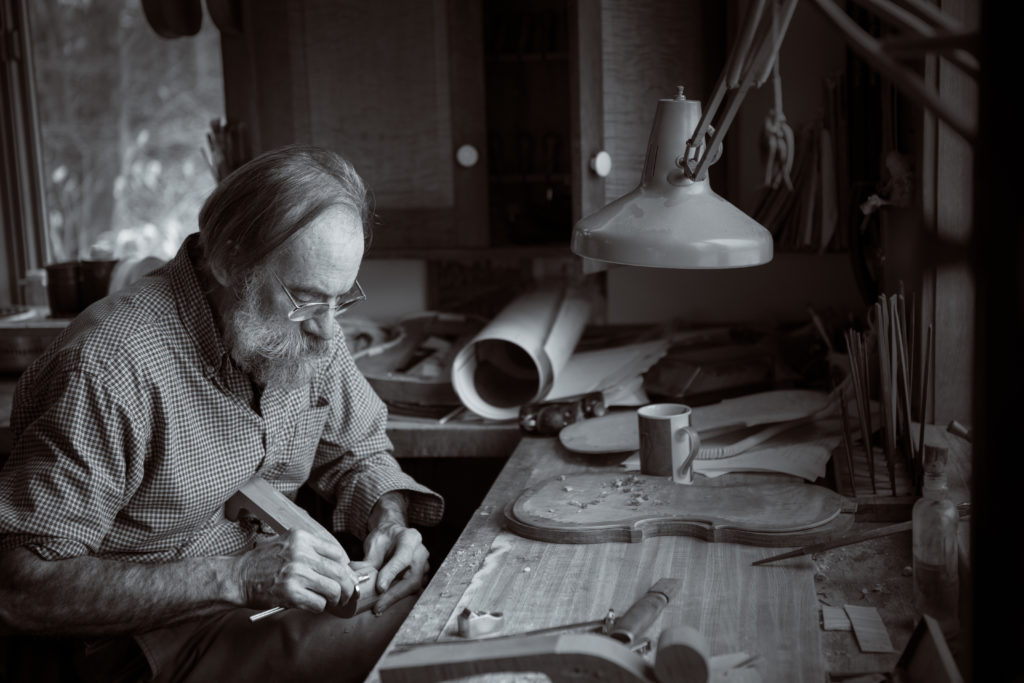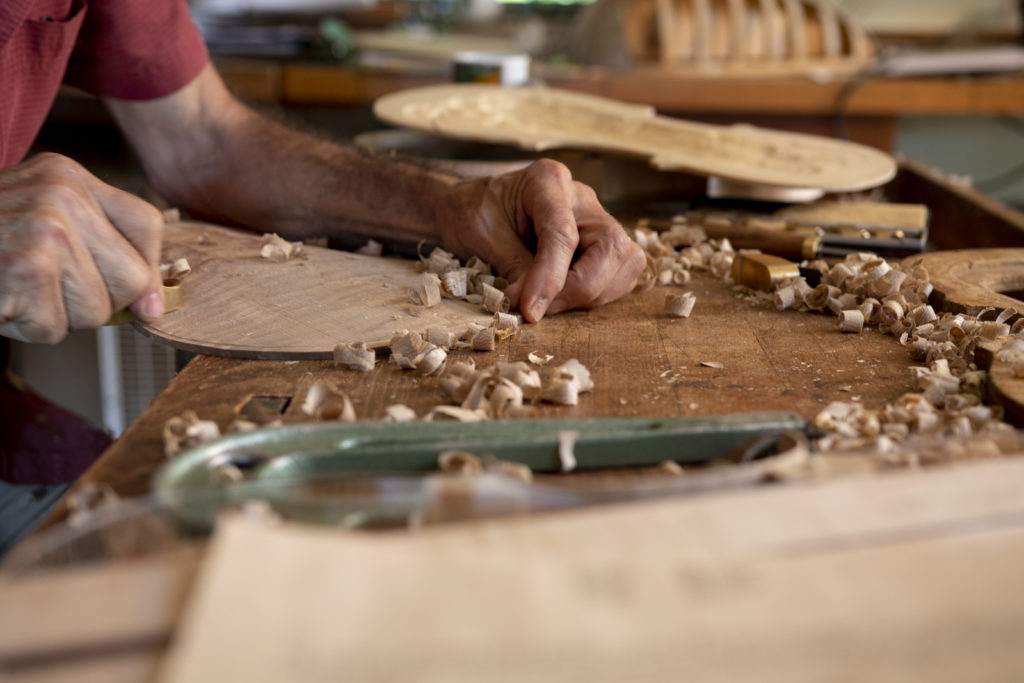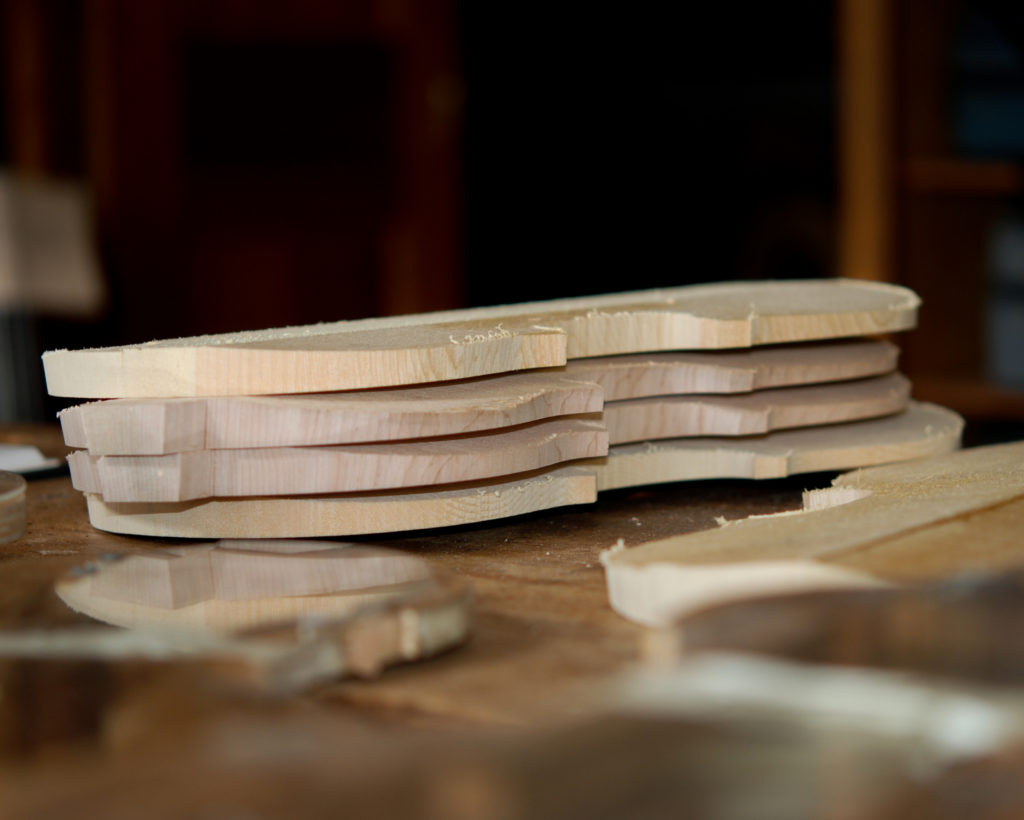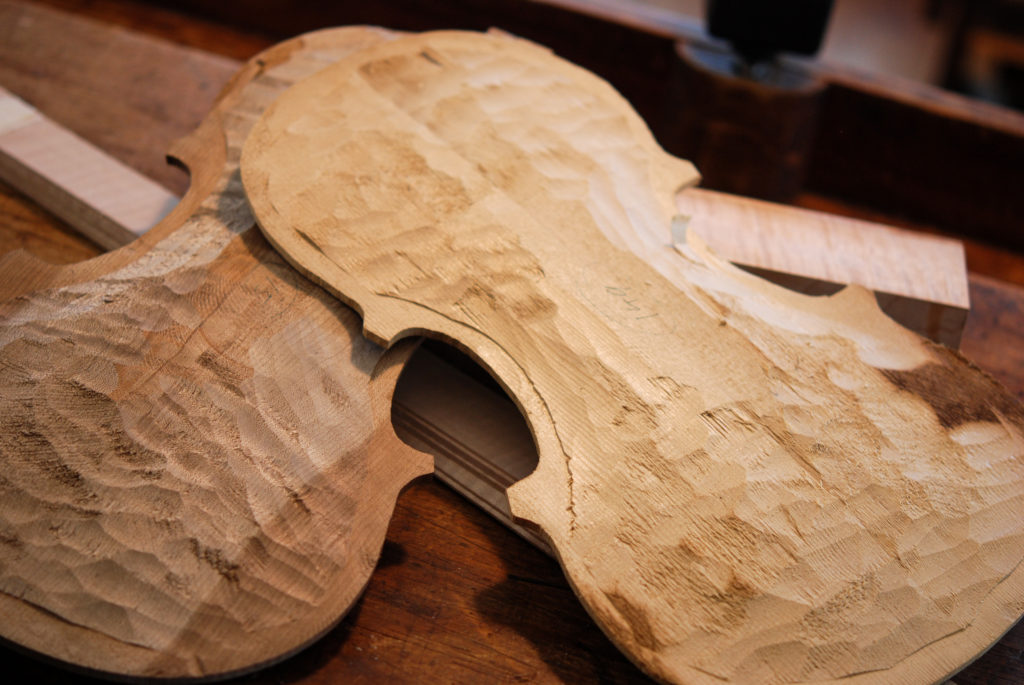Learn who you are. Your level of experience and your personality are going to show in your work, and that’s the way that it should be. Don’t try to make your instruments look or sound like anyone’s but your own. Don’t try to be something that you’re not, but do try to be everything that you can be. If you want to copy a Stradivari, don’t do it to be like Stradivari; do it because it is a helpful way to learn about who you are as a maker.
Pay careful attention. Over time, you will begin to see things more deeply: the line and edge, the way the f-holes fit, overall balance… Play around and notice the differences that you weren’t previously aware of. Your curiosity will help your awareness grow.
Say yes to learning opportunities. If someone points you in a particular direction, consider it an opportunity that you can learn from. There is no substitute for experience. I am very fortunate to have worked with Brad Taylor, because for better or worse, he entrusted instruments and work to me that were beyond what I thought I could handle. I gained confidence and the invaluable experience of handling the eccentricities of many different instruments and situations.
Work on as many instruments as you can. One of the great benefits of the ten years I spent doing repair and restoration work was realizing how many different ways good instruments can be made. The experience of taking apart and seeing the problems of so many different instruments helped me understand how they work, how to make them better, and their underlying principles. Working in a big urban shop with lots of activity can be an efficient way to get experience with various instruments, customer interactions, and what works in the world of violins.
Find a mentor. It doesn’t feel to me as though there are secrets or shortcuts in learning the craft of violin making. But it helps to have someone show you things like: This is the way we are going to face fingerboards; this is what our bridges are going to look like; this is how we put a bass bar in. The experience of doing it over and over again gives the inner sense of whether or not something feels right, and that sense comes in very handy.
Develop strong self-discipline. In Mittenwald, where I got my initial education in violin making, I developed the habit of working every day, being disciplined, being accountable, forcing myself to see what works and what doesn’t work, and knowing when something should just get thrown into the woodstove. It helps to be a hard worker, but then, that helps with everything.
Seek honest feedback. Don’t make the mistake of thinking that you can give all the feedback you need to yourself. Find someone to do that for you. In general, good players aren’t good makers, and vice versa. Life doesn’t have enough hours in it to be able to do both, so find someone to do that for you. Find an experienced player with whom you can have technical and philosophical discussions about what makes a good instrument, what players need, and the details of your work. Getting frank feedback from a good player is rare, but look for and develop that kind of relationship if at all possible.
Make many instruments. One good choice that I have made has been to make as many instruments as I can. The more instruments I make, the better they get. And one of the things that will allow you to make lots of instruments is having access to relatively inexpensive materials. For me, using local woods allows me to build instruments without having to sink much capital into those instruments.
Have a sense of humor. Laugh and learn from your experience, good and bad. When you’re doing something that takes so much time, and there’s so much personal and emotional investment, it’s almost impossible not to be defensive. But when you feel you need to protect what you have created, it makes it difficult to learn.
Give yourself time. Find out whether you really love it. I left Mittenwald feeling very clear that violin making wasn’t for me. I wasn’t cut out for the German professional path, and it wasn’t clear to me what other paths were at that point. And then for most of the ten years when I was working in Boston, I didn’t consider myself a violin maker; I considered myself to be doing violin work, and I was doing it because I couldn’t find an easier or a better way to make a living. But I was open to whatever the right thing was. And it’s that openness that allowed the path to then open and for the pieces to eventually fall into place. You have to love this work to succeed, but love can take some time to develop, so give it that time.
Let it evolve naturally. Having a healthy relationship with ego, self-worth, psychological resiliency, and good general health will go a long way towards opening doors. There were kids who came into the violin making school who had a very clear idea that this was what they were going to do. Their father was a violin maker and it was their family business and they needed to learn to make these instruments. But that makes it difficult to grow in a healthy way. I was fortunate in following this path because it evolved naturally and it gave me the things I wanted to do or to feel, not because I was achieving something for my father’s business or out of some lofty goal of being the best violin maker in the world.
Stay humble. Every day you need to have a good, thorough humiliation. Celebrating humiliation is one way to be open to learning, of really being able to admit, I did something dumb here or This really didn’t work; I should have known better. My early days were full of such moments, such as foolishly handling a client’s valuable instrument and dropping it, or finding that at the end of the day I was further behind than when I started, or that I did more damage in the course of the day than I had repaired. It isn’t unusual. You’re doing stuff that’s risky. Sometimes it goes well, and sometimes it doesn’t. But the only way through is through.





